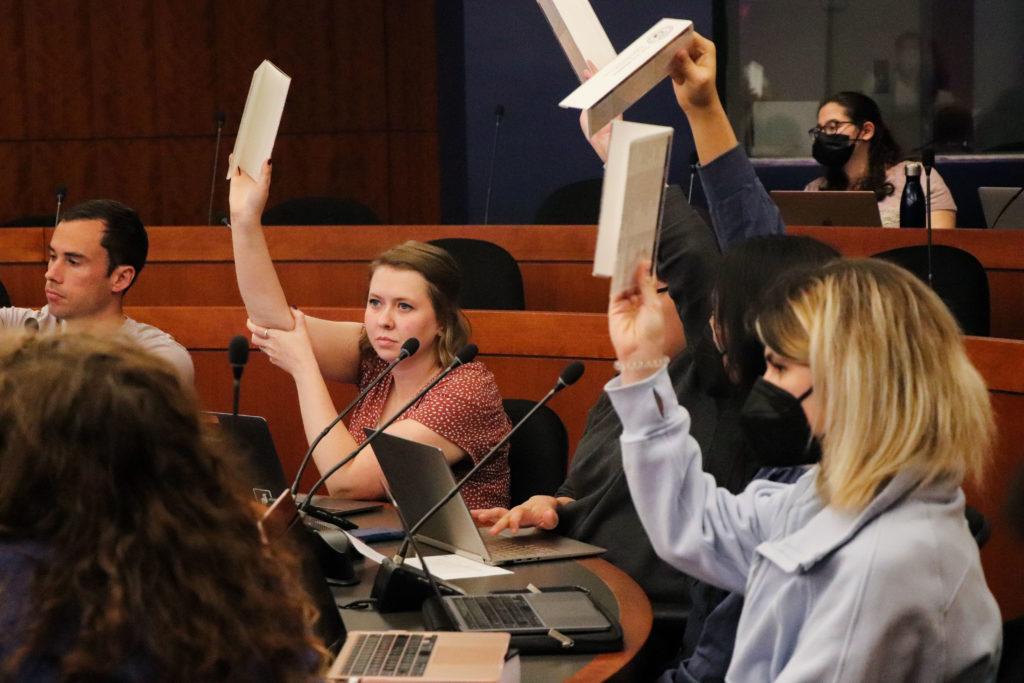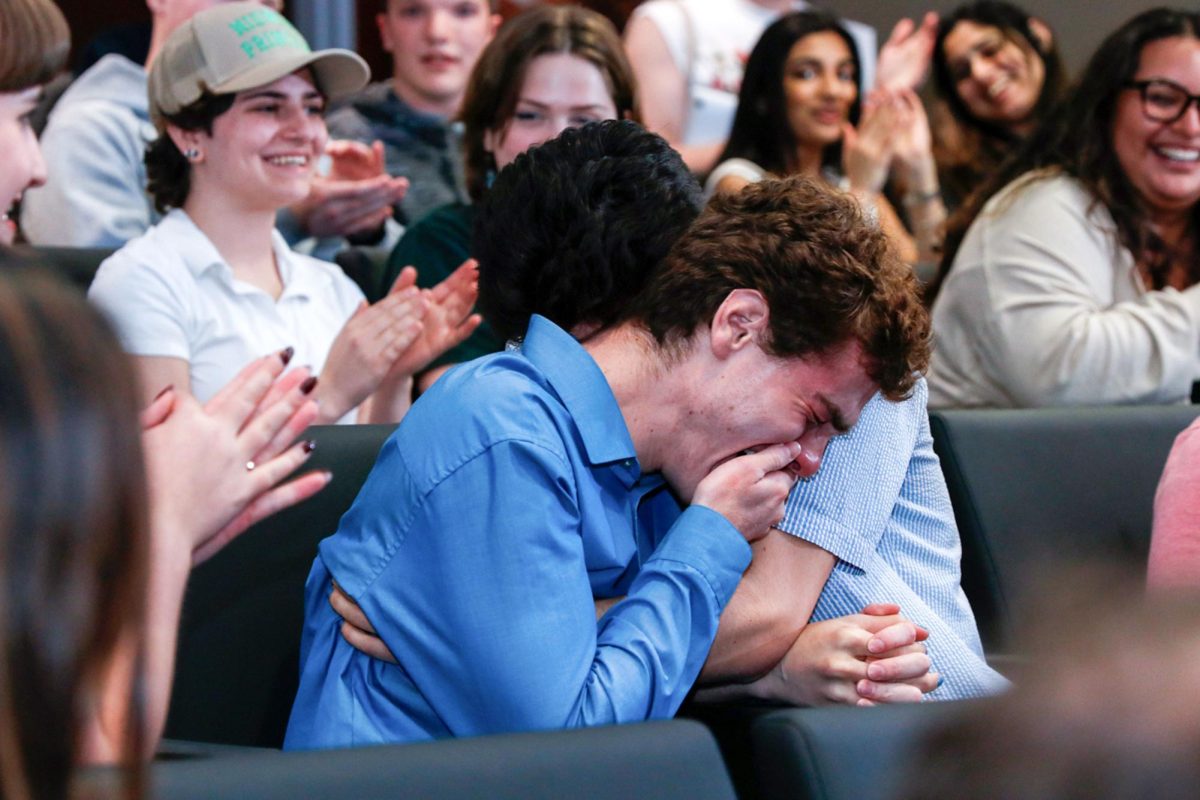The Student Association Senate unanimously passed an act that will work toward simplifying internal operations for advocacy groups in the SA.
The Encouraging Advocacy Act reforms resource groups, groups within the SA’s Diversity and Inclusion Assembly that advocate for specific issues, giving students who are not SA members an opportunity to work with SA senators to discuss and formulate SA policy about issues important to them. The act will better define the process of forming resource groups, giving students clear guidance on the conditions needed to maintain the group.
SA Sen. Henry Deng, CCAS-U, who sponsored the resolution, said the legislation will make the formation of resource groups easier, only requiring three SA members to start the group and approval from the chair and vice chair of the Diversity and Inclusion Assembly to launch. The act also lays out the responsibilities of resource groups, which include backing SA legislation, formulating reports and meeting with University administrators about their concerns.
“There have been many caucuses and resources coming and going,” Deng said. “And there are no clear guidelines on how they should be defined and how they should be supposed to work in the SA.”
SA Sen. Cody Ingraham, Law-G, spoke in support of the Encouraging Advocacy Act and said the act would give the SA more flexibility to focus on timely issues without having to follow the narrow guidelines that were previously in the SA Constitution. Resource groups would then be able to issue recommendations and gather student input.
“This really aligns with policy issues,” Ingraham said. “This would allow senators who have a certain policy interest to create a fluid resource group without having to have say such a formal structure that’s embedded in the Constitution.”
The SA also unanimously passed the University Wide Program Fund Committee Reorganization Act, clarifying the SA’s internal documents to show that the SA does not control this funding. The committee and fund is composed of SA senators and University staff members from the Office of Student Life and provides funding from the University for campus organizations.
Senators rejected a motion to reconsider the Mount Vernon Meeting Act, which failed at the last SA meeting and would have removed the requirement from SA bylaws to hold an annual meeting on the Mount Vernon Campus.
The governance and nominations committee decided to not move forward with Arjun Singh’s nomination for legislator general, rejecting his nomination. The position was previously occupied by Andrew Harding, who announced his resignation Oct 30.
President Christian Zidouemba addressed the progress of a project that would introduce Plan B contraceptive pill vending machines to campus, making it easily available to students, as well as a project to improve textbook affordability. Zidoeumba said he met with Provost Chris Bracey to discuss the accessibility and affordability of textbook materials to students.
Zidouemba also said he has not yet filled the vacant seat on the Student Court due to a lack of applications, but hopes to fill the position before the end of the school year, with interviews for the seat beginning soon.
“It’s my duty to make sure that I’ve been with the best people in our campus, not only being able to bring people to the court, is a duty I don’t take lightly,” he said. “With that being said I had to push some applications because I didn’t receive enough candidates.”
Vice President Yan Xu said that he spoke with facilities managers about menstrual product dispensers being fully stocked in all University bathrooms. Xu said his team will continue to follow up with facilities to make sure those products are continuously available.
Xu also spoke of the textbook concerns facing students and said he spoke with Provost Bracey about officials’ plans for addressing student access.
“There is a textbook accessibility issue on campus and they are taking active actions, [Bracey] suggesting that he’s going to use open source materials and help the faculty adjust to open-source materials in their instruction and also provide access through library services,” he said.
During the public comment session, former executive Chief of Staff Cordelia Scales said that processing delays within GW’s mail system has caused her to almost miss voting in two elections, and she wants the SA to take action. Senators unanimously passed the Election Day Voting Act at their last meeting, recommending faculty excuse absences on Election Day.
The next Senate meeting will be held Nov. 21 at 8:30 p.m. in the Elliott School State Room.
Erika Filter contributed reporting.









